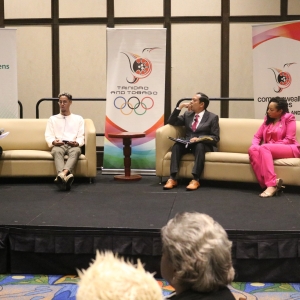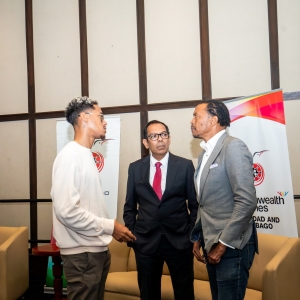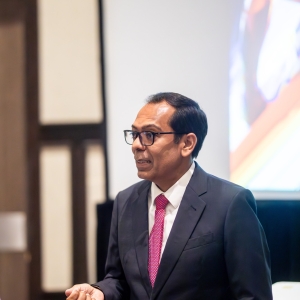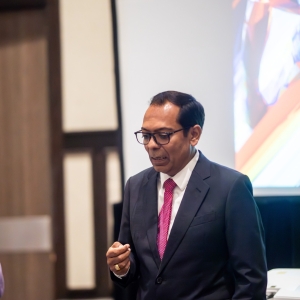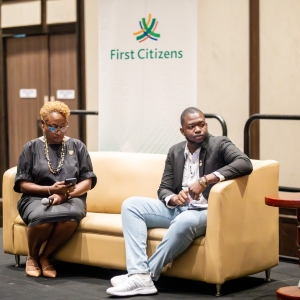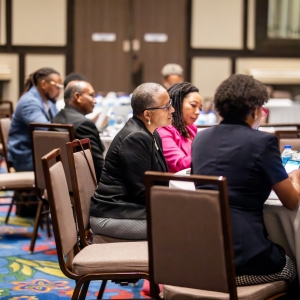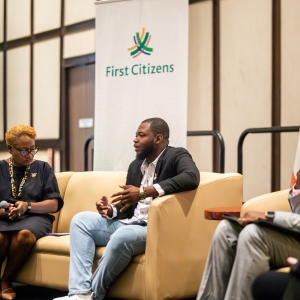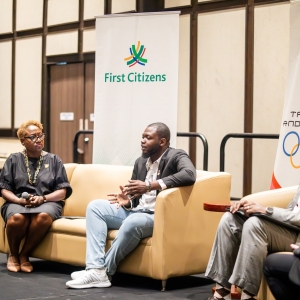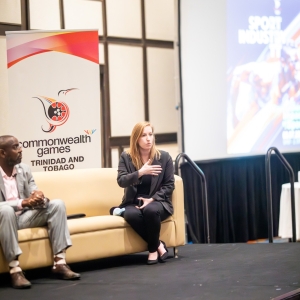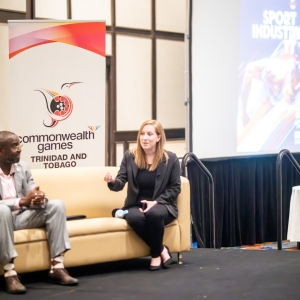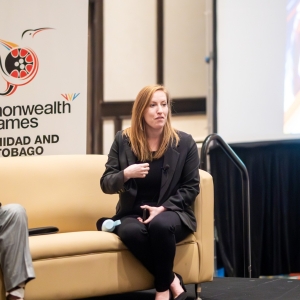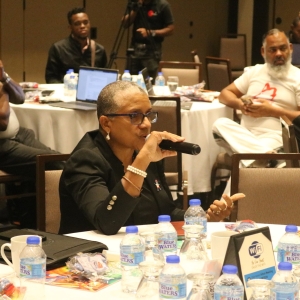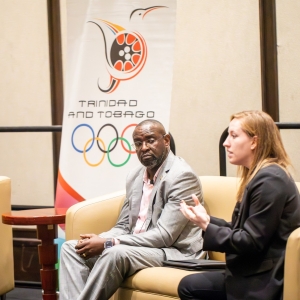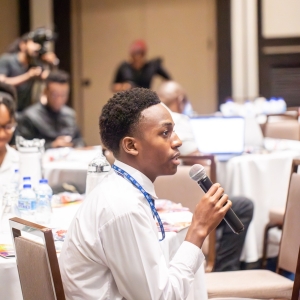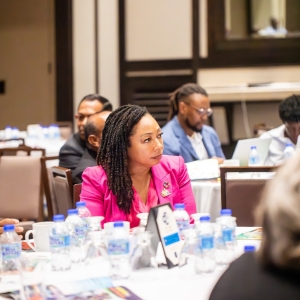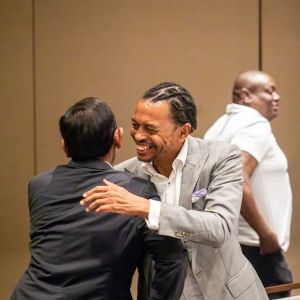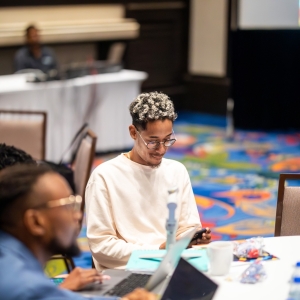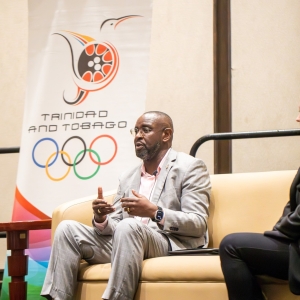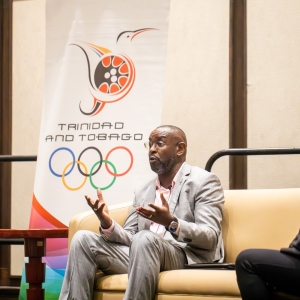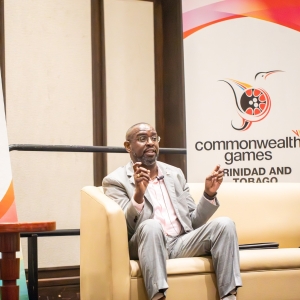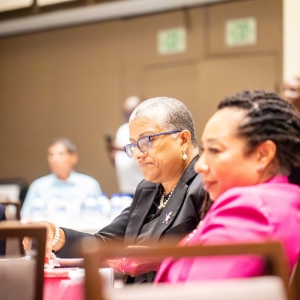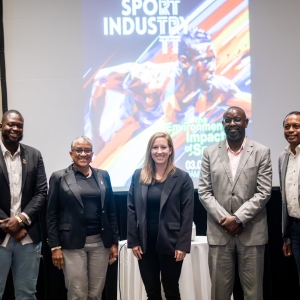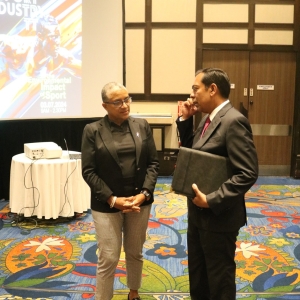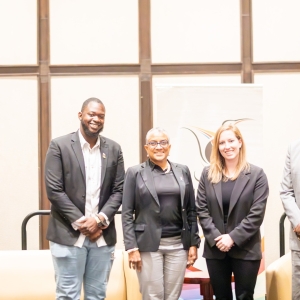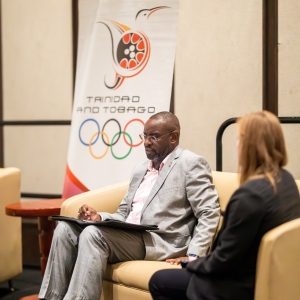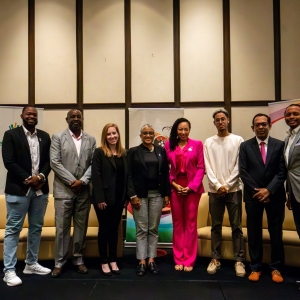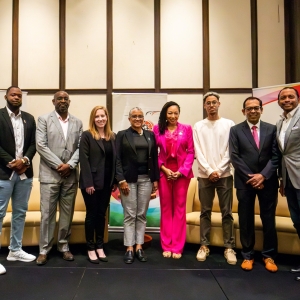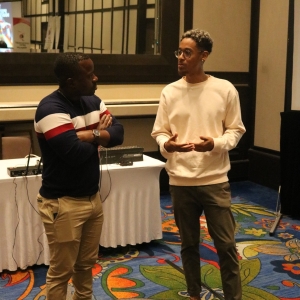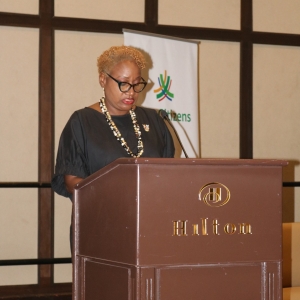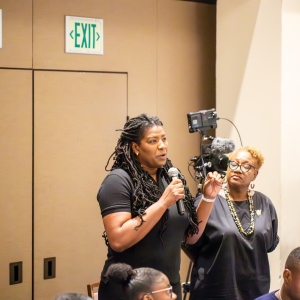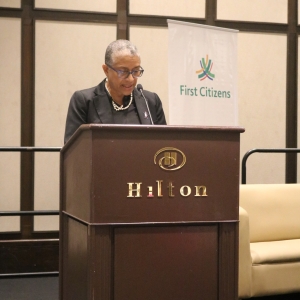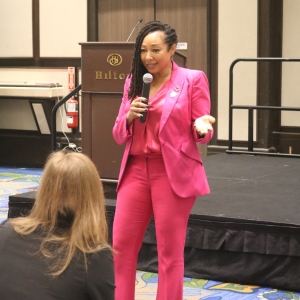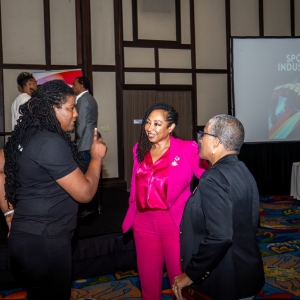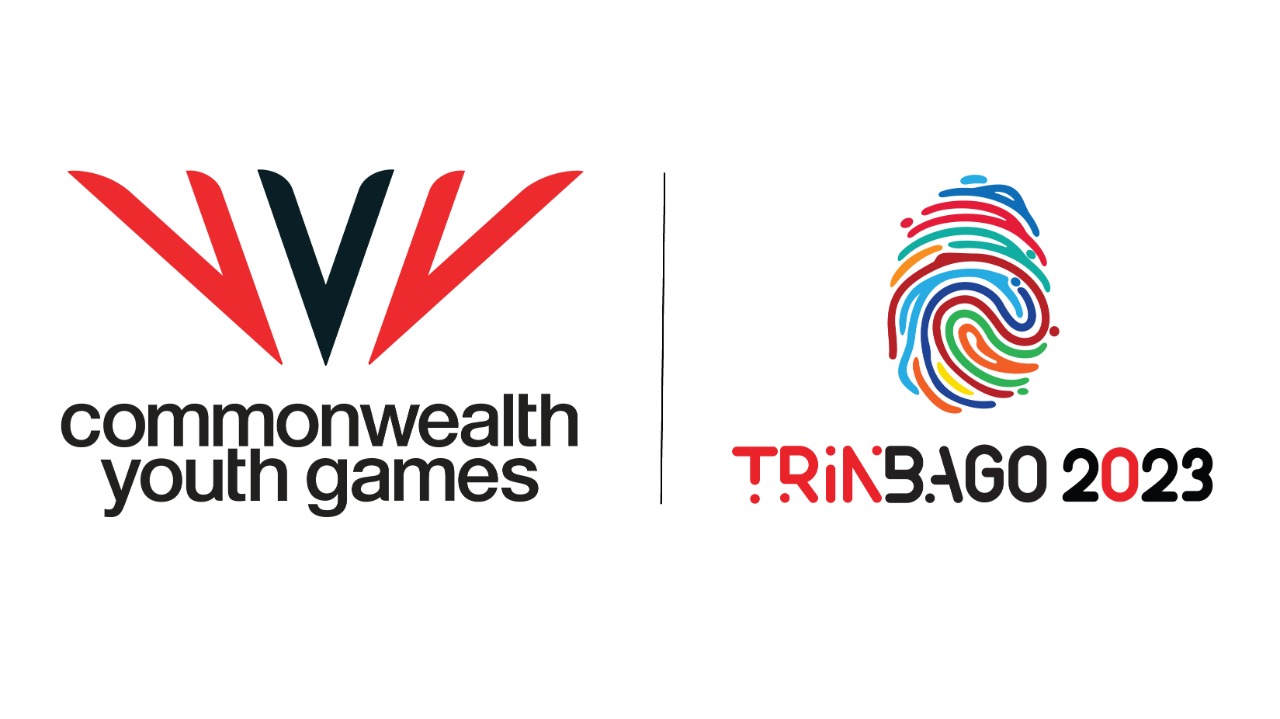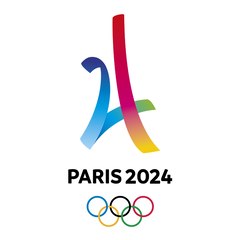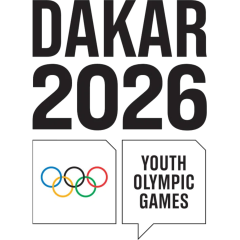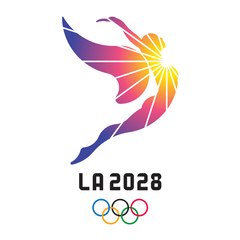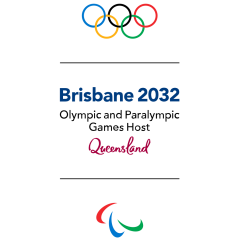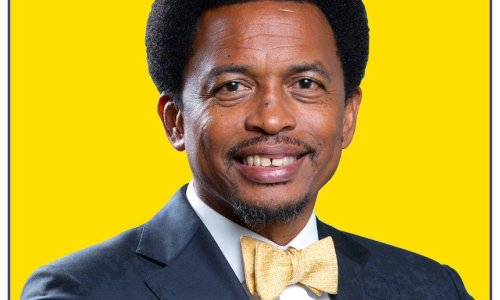On Saturday, August 6th, the first heats of the Women’s Single Sculls will take place at Lagoa Stadium in Rio de Janeiro, and Aisha Chow will carry her Fluid single down to the water at Lagoa Rodrigo de Freitas, "located in the heart of Rio with a spectacular backdrop of mountains, the Tijuca Forest and Christ the Redeemer statue at Corcovado."
She is the first ever rower to represent Trinidad and Tobago in the Olympics. Born and brought up in Port-of-Spain, the lively capital city of the Caribbean T&T republic, Aisha attended Saint Maria Goretti Primary School and St. Joseph’s Convent, then came to the U.S. for college on academic scholarship. By the end of her first year of undergrad, she was also on athletic scholarship for rowing, and in the top varsity boat for her NCAA Division I school. Between then and now, almost 20 years of prologue has played out, leading up to this moment in her life.
I ran into Aisha in line at Starbucks recently, and we shared a late breakfast. She talked to me about rowing over coffee and three different Starbuck’s sandwiches she haphazardly nibbled on after her first on-the-water workout of that Saturday, 10 x 1k at high rates with one minute rest, with Michael Kimmons pacing her.
For those of you who don’t know the area, Aisha rows on a busy southern stretch of the San Francisco Bay at the Port of Redwood City out of Bair Island Aquatic Center (BIAC). It’s an expanse of water frequented by cargo tankers with names of faraway places, ferry boats shuttling hackers between San Francisco and Silicon Valley, yachts, junior sailors, outrigger canoes, dragon boats, pelicans, Canadian geese, ducks, seals, occasional dolphins, and eight rowing clubs, including Stanford University.
Aisha rows at low tide
Low Tide Comic Strip: Aisha and Coach Kristin at Bair Island, freeing the launch from mud before practice
Aisha is the current president of the BIAC executive board, with a Ph.D in Pharmacology from Duke University, and undergrad, double majors in Biochemistry & Molecular Biology and Microbiology & Immunology from the University of Miami, she also holds down a non-trivial day job as a principal research scientist and team lead at a biopharma startup in San Francisco.
Aisha started rowing in college at the suggestion of her cousin, also a rower. She returned to rowing as a masters’ rower at BIAC, after a 10-year break from training.
She told me a bit about her rowing and her life, which is worthy of sharing with the club, as she prepares to race in Rio this summer.
Trinidad, Ballet, and Jiu Jitsu
Aisha credits her father, a marathon runner, with valuing athletics as a key experience for building character and independence.
"He always wanted me to be doing a sport. He thinks sports build character. It is very important to him. He thought I should always be doing SOMETHING. 'Okay,' he would say ,'If you don't want to do gymnastics anymore then pick something else. What's it going to be next?' "
She recalls a string of experiments in sports as a child, starting with dancing and ballet, followed by gymnastics ("until I got too tall"), and then years of martial arts fighting at a school called The Purple Dragon.
"It was this variant form of jiu jitsu, called Don Jitsu. You really respected the sensei, the teacher. We practiced all the time. It gave a lot of kids who had it rough a sense of confidence, a good sense of themselves. I sparred against boys. It made us all better."
In high school, she was a competitive swimmer. "I was a TERRIBLE swimmer" she says dramatically. She says this all the time. As a swimmer myself, and well-acquainted with what one looks like, I find this categorically hard to believe. As she started college, her cousin told her about rowing.
"She said to me, 'You should try rowing–you’d really like this. It’s so you.' "
She talks about how her Dad purposely cultivated a sense of competence and self-reliance, starting with childhood.
"I was 11 years old. I remember my Dad driving me to my first day of secondary school. Since it was my first day at a new school in a new town, I fully expected that he would be picking me up after the end of school day. Instead, on the way to dropping me off that morning, he drove by the closest maxi taxi stand and explained how I could find my way back after school. He said, 'Walk here after school. Make sure you come to this stand so you can get on a Yellow Line van. Make sure you get off somewhere close to your Aunt's house so you can walk there. You know how to get to your Aunt's house, right? And I'll pick you up at your Aunt's this afternoon.'"
She remembers thinking, Really?? I've never even taken public transportation on my own before. And, no coddling on my first day?" Looking back, she sees it as the kind of thing that is typical of her father – quietly instructive and empowering through his implicit confidence in her independence and ability.
She tells me about her brothers, and sisters, and cousins, and her mother.
"My Mom is chill. She doesn’t worry about things. She really provided a safety net to allow her kids to try anything - she loved us kids unconditionally (even when she was super irritated with us) which I think helped set us up to know that we could try anything."
Memorable Teammate Quips:
Victoria Mendoza, cheering Aisha on at the start of a 2k erg test, where Aisha is lined up with the men as the second from the top score: "C’mon, Aisha. Show ‘em what time it is!"
Chuck Bonicci, after seeing Aisha row by him in her single during a pre-dawn team practice: "I saw a wisp of vapor go by, and I just assumed that was her."
Okay, go ahead, dazzle me
Because of the way her rowing career evolved (spring-boarding on to an elite stage from the context of post-collegiate, masters rowing), Aisha has had to "cobble together a training program" for herself geared to high performance racing in her single.
Before turning to sculling, she trained and raced with BIAC's competitive sweep teams under several coaches, including Jenny Antons Postich, Carolyn McGonagle, Jenifer Aguirre, and Jim Wojcik, who referred to one of her early sculling wins at Southwest Regionals 2013 in a team email this way:
"Aisha 'I don't need to sprint' Chow got it started for us early with an impressive win in the 1x, having about a length open by 500m in and taking a commanding lead of 9 seconds into the finish line."
Jim reinvigorated an intensive erg training plan at the club, with shared spreadsheet access, that up’ed the land training ethic on the teams, and nicely supported Aisha’s personal program.
Aisha credits Jen Aguirre's sweep coaching for first "turning a light bulb on in my head" about a "different" (more effective) way to row, with a focus on technical improvements. "She's a miracle worker—she improved my rowing 300%."
When she decided to start sculling, Aisha worked with Jen for private sessions leading up to her first Head of the Charles singles race, and discussed the course with her. If you were out on the water on those hazy pink Sunday mornings, you could hear Jen say to Aisha, "Okay, go ahead, dazzle me," at the start of the lesson.
Elite Racing
Aisha at qualifying
Ultimately, she dazzled us all, winning the hammer at CRASH-B’s in Boston, sprint races at the elite class Canadian Henley and at Masters Nationals, and taking decisive golds at Head of the Charles Women's Club Singles in 2014 and Women's Masters Singles in 2015. She is known by first name at that world class head racing event, where last year Fluidesign had their newest BlueMax single set up on display waiting for her to arrive: "You guys are from Bair Island? That's for Aisha!," the owners told us, pointing to the blue and black carbon fiber racing shell shimmering in a crisp, autumn sun on the Boston side of the river that day.
For the past several years, Aisha has been working on stroke technique with Kristin Goodrich, who is a former U.S. National Team sculler, Head of the Charles championship class winner, and Norcal juniors coach. Aisha follows an erg and on-the-water training program from Marlene Royle, a Boston-based coach who specializes in masters' rowing. She has peppered in sessions with Brian de Regt, the highly regarded juniors coach at Oakland Strokes, and Mike Still, an Olympian and world-class sweep rower. She’s done practice pieces on the water with Derek Stedman, a Canadian Henley winner and elite class sculler from Victoria, British Columbia.
As she achieved wins in progressively more competitive events, she set her sights on the next level up, the Olympics. She considered U.S. National Team tryouts, but chose the Latin American and Caribbean Trials when the opportunity to compete for her native country materialized through a series of synchronistic events. Trinidad joined FISA in the fall of last year, and made arrangements for Aisha to compete in the qualifier only two months before the event.
Latin American and Caribbean Trials
The qualifier event was the World Rowing Federation (FISA) Americas Olympic Continental Qualification Regatta in Valparaiso, Chile, in March earlier this year, where scullers from 21 Latin American and Caribbean countries competed for six Olympic spots in the women’s single.
Standing on the dock at Bair Island after a technical row and shortly before she was to leave for Chile, Aisha chatted with her coach, Kristin Goodrich, about racing strategy. "I need a sprint. I know I’ll need to go out fast, but I don’t want to fly and die. I need something at the end."
"Sometimes it’s a good thing to fly and die," Kristin says, in a characteristically Zen koan kind of way. "You find out what your limits are. Sometimes you don’t die, and you are faster than you think. Don’t be afraid to try it out in practice."
At the trials, Aisha proceeded through several heats to the semi-finals that would essentially decide the winners of those six Olympic berths. The night before her semi, she was sick, and stayed up late, studying times and analyzing the competition.
"Kristin had said, 'Sometimes fly and die is a good thing.' I thought, I have to fly. Well, not fly and die, but fly. I had never rowed that fast before. I looked at the heat sheets that night with Dan. I was sick. I stayed up late, looking at the times those people had done in the heats. The only way was … well. There was no way around it. I was going to have to row faster than I'd ever rowed before in my life. A lot faster."
And that is what she did. Her personal best on-the-water 2k before that race was a 7:56. On Laguna la Luz that day, she rowed a 7:49 to make the grand final and earn an Olympic berth for T&T. I asked her if it hurt more than ever before. She paused to think about it. "No. Not really. I don’t remember it hurting that much."
Rowing and Life
Aisha's husband, Dan, is a highly competitive cyclist and triathlete, and the perfect partner to support her in brainstorming racing and fitness preparation. "That's how Dan and I roll," she tells me about the spreadsheet data she's analyzing looking forward to the Olympics.
"It's competitive research to set aggressive (but theoretically possible) goals."
Now, Aisha talks about training leading up to the Olympics, balancing quantity with high intensity, longer rest pieces, and where to gain speed.
"I’m not doing the level of erg training I was doing for the CRASH B’s. But I’m 10 times faster on the water. Kristin says one thing. One tiny, small, subtle thing. About my chin or my hands. And it changes everything."
One gets a fleeting impression of rowing coach as artist, painting speed with fine detail.
I think of the time span from now leading up to the first heat in Rio. "When are you going to start the taper?" Then I say, "Look, whatever you do, don't get freaked out about it, don't let all this get you freaked out."
Aisha responds loudly, "I am so NOT freaked out. I am not freaked out at all. I am chill."
Personal Tidbits & Quotes:
Favorite Dessert
A traditional "Trini" black rum cake with rich white frosting. It's VERY ALCOHOLIC. You soak the cake in rum for a week, then you bake it, then you add more rum in case some of the original rum got baked off.
Trinidad
The name of the island comes from the Holy Trinity. It’s very beautiful, it looks like this. There are palm trees, and ocean. It's paradise. It's got some sketchy areas, it's like Rio in that way.
"This is a hobby for me," she says emphatically as she unwraps a spicy chorizo sandwich. "It's a GREAT hobby...," she adds, but not the core of her sense of identity.
"I don't need this. If I stopped rowing tomorrow, I would still know who I am. It would not destroy me. I have a great job that I love, and a life I love. I can't imagine how hard it would be to be 'all in' – with my whole life wrapped up in training for the Olympics, the stakes are so much higher."
I take a long look at her as she finishes this thought, as if seeing her for the first time. I let the paradox of that statement sink in.
When I was swimming, my identity was entirely wrapped up in being a swimmer. When I quit after 15 years and my entire childhood, it was empty and disorienting. But looking back, the thing that sticks with me – the thing that I know for myself – is that this is the best stuff in life. Waking up before dawn, chlorine saturated, rainbows around all the lights, sleepy, refining a skill, training hard, going into something so deeply that everything else falls away. It’s such a pure experience. Competing against other athletes who know that kind of reality, you get a heightened sensibility, a profound sense of connection.
But in retrospect, you realize that this is finesse. This balanced perspective is exactly what makes Aisha great. It is the life equivalent of a set boat. It’s good catch timing, a feel for the water, knowing when to apply pressure, and when to let the boat be a boat, running underneath you.
Aisha's eyes are tearful when I look up, and she distills her feelings about rowing.
"On the other hand, I am so lucky. This is … such an HONOR, to have this opportunity. I LOVE rowing. It's something that every day you can see an improvement. It's something that -- you cannot get that kind of thing anywhere else in life.”
Reflecting on Aisha, Jen conjures up a picture that resonates:
"When you talk to her about it, some workout, she's like, 'oh, my god, that sounds so hard.' Because it's not actually her wheelhouse - to work out. Not like this. But the better she got, the more it was interesting to her. Like, 'Oh, well, I could do that. Next time I'll try to do this. Oh, look, I did that. Well, what's the other thing? The Olympics, I guess. Okay, I'll write this thing. They'll probably never accept it. Oh, they announced they're going? Okay, I'll go down there and try out. Well, I'm going to have to row faster than I've ever rowed before in my life. Well, that happened. I'm going to the Olympics.'
It's not that she hasn't worked her ass off for it, she has. But it's not the path of most Olympians, living, breathing, eating, and sleeping for it.
In six years, she went from being on a local regional masters sweep team to the Olympics. And along the way, has won everything. I think that every time she won something else, it piqued her interest."
Whatever it is in the confluence of circumstances, island consciousness, or innate drive to meet challenges that test her mettle, Aisha is clearly a rare talent. As she prepares for Rio to face the most competitive field she has yet encountered, we wish her Godspeed and good rowing.
About the Author: Vicky Bialas is a rower and swimmer who lives in the San Francisco Bay area. Off the water, she is a writer at Docker, Inc., and connoisseur of donuts and triple espressos.
© Victoria Bialas, June 2016

